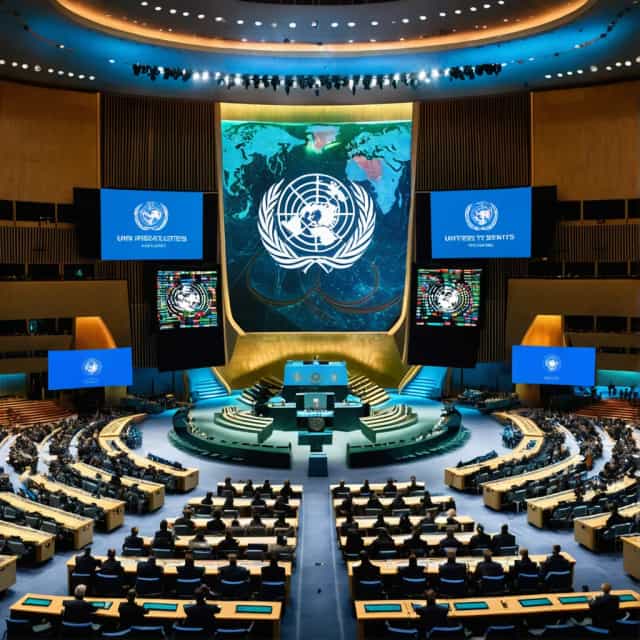
Image source: Block Media
Korea's Pivotal Role in Shaping the Future of the Digital Asset Industry
Seoul’s Grand Hyatt Hotel became the epicenter for global discussions on the evolution of Korea's burgeoning digital asset industry during the "East Point: Seoul 2025" event held on October 22nd. The conference was not merely a technological showcase but a strategic summit that united policymakers, financial institutions, and Web3 pioneers from around the globe. The event spotlighted Korea's critical position within the shifting financial landscape and its growing influence on regulatory frameworks, technological innovation, and market restructuring.
With an impressive roster of international participants, the forum created a dynamic space where lawmakers, developers, and industry stakeholders engaged in robust debates. From regulatory harmonization to cutting-edge blockchain advancements, the conversations underscored Korea's role as both a laboratory and leader for the global digital asset ecosystem.
Bridging Policy and Innovation: The Push to Lead the Global Regulatory Race
A standout session brought together prominent figures from Korea's political spectrum to dissect the nation’s approach to stablecoins and tokenized securities (STOs). Lawmakers Myeong-byeong Duk and Ando Geol from the Democratic Party, Kim Jae Seop from the People Power Party, and Lee Jun Seok of the Reform New Party shared the stage to explore ways to ensure Korea remains competitive internationally. Despite their differing affiliations, the collective call for faster institutionalization of key innovations like stablecoins and STOs highlighted the urgency of staying ahead of the regulatory curve.
Representative Myeong-byeong Duk noted how token-based payment systems could revolutionize export-import industries, providing cost-effective alternatives for transaction fees and foreign exchange. He stressed that these advancements could also enhance the convenience of foreign consumers engaging with Korea's booming sectors like K-Culture and medical tourism, ultimately propelling Korea's global reach.
Meanwhile, Kim Jae Seop emphasized the transformative impact of tokenized securities on financial transparency and market vitality. He framed STOs as tools for positioning Korea as a global financial leader. Expanding on market inefficiencies, Lee Jun Seok called for structural reforms, proposing a separation model akin to the securities market—where exchanges focus on listings and asset maintenance, while brokers compete on delivering diverse financial services. This approach, he argued, would foster competition and bring fresh ideas into the industry.
The session was capped with insights from U.S. policy leaders, including Caroline Pham, Acting Commissioner of the Commodity Futures Trading Commission (CFTC), and Harry Chung, Deputy Director of the White House Digital Assets Policy Advisory Committee. Their analysis encouraged Korea to recalibrate its regulatory strategies to stay attuned to global shifts.
Pioneering Korea’s Digital Citizenship
While policy dominated several discussions, the event also explored innovative technologies shaping the future. Simon Kim, CEO of Hashed, delivered a compelling keynote on "digital citizenship," envisioning wallets powered by blockchain-based decentralized identity (DID) to provide foreigners seamless access to Korean financial and public services.
“Korea has the potential to lead with culturally immersive digital citizenship solutions,” Kim asserted. His proposal emphasized blending digital identity frameworks with K-Culture, positioning Korea to challenge existing models from countries like Estonia and Abu Dhabi. Highlighting the global vibrancy of K-Pop, he argued that Korea’s inclusive approach to culture and community gives it a competitive edge in redefining digital citizenship.
Industry heavyweights like Mastercard, Anchorage Digital, Solana, and Aptos showcased advanced blockchain infrastructures that could bridge the virtual and physical economies. Their presentations highlighted innovations prioritizing speed, security, and cost-efficiency, further accelerating blockchain’s mainstream integration into global financial systems.
Stablecoins: Forging the Future of Korean Financial Strategy
The discussions around stablecoins emerged as central to Korea’s digital asset roadmap. Policymakers focused on the regulatory framework supporting KRW-backed stablecoins, addressing obstacles that need to be overcome for smoother implementation. There was a shared urgency to advance these policies swiftly to align Korea’s regulatory structures with the burgeoning opportunities in the Web3 space.
An investment firm executive attending the conference remarked, “This event illustrated both the fervent pace of industry growth and the collaborative ecosystem behind it. I came to assess the investment potential and left with a deeper understanding of the transformative influence Korea is driving globally.”
Korea’s Blueprint for Global Digital Leadership
"East Point: Seoul 2025" successfully combined diverse perspectives to craft a cohesive vision for Korea's digital asset landscape. With its commitment to regulatory clarity, technical innovation, and market inclusivity, South Korea continues to solidify its stature as a global focal point for digital economic evolution. As momentum builds, Korea is poised not only to influence the digital asset industry but also to redefine the interconnected web of technology, regulation, and culture for the global economy.










